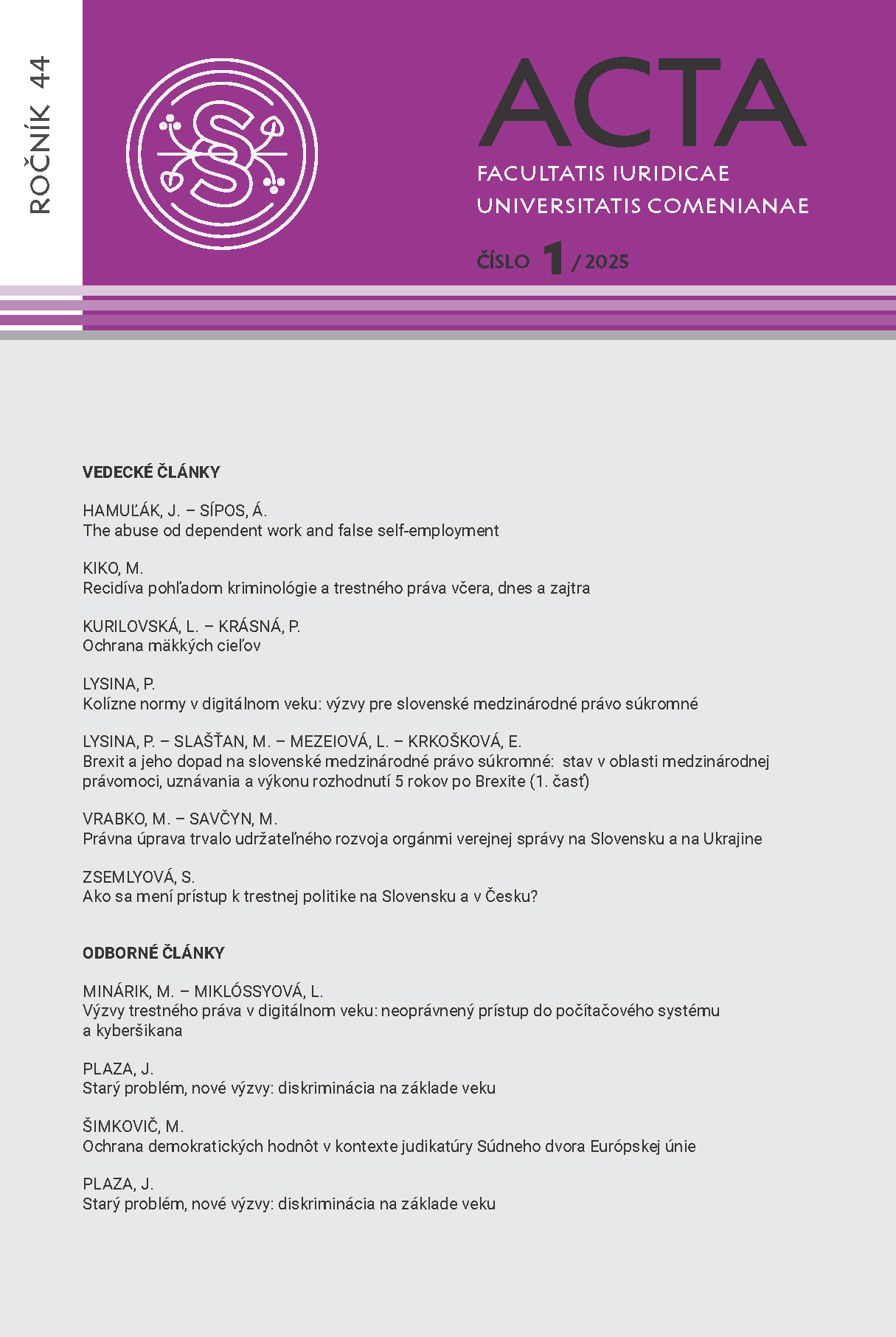Recidivism through the lens of criminology and criminal law past, present and future
DOI:
https://doi.org/10.62874/afi.2025.1.02Keywords:
recidivism, first-time offender, addictive substance, criminal policy, sanctioningAbstract
The article examines the phenomenon of recidivism from an interdisciplinary perspective, focusing on criminology and criminal law. Recidivism, defined as the repeated commission of crimes by individuals who have already been convicted, represents a significant issue affecting societal security and the effectiveness of criminal policy. The author analyzes the typology of recidivism (general, special, homogeneous, heterogeneous) and profiles a typical recidivist based on criminological research. Statistical data from Slovakia for the years 2012–2023 reveal a consistently high proportion of recidivists among convicted individuals (averaging 32%), with property criminal offences and substance abuse playing dominant roles. The author evaluates current measures and proposes legislative and non-legislative solutions to address the issue. In conclusion, the article emphasizes the need for continued reform of criminal policy, focusing on an individualized approach to recidivists and first-time offenders, interdisciplinary collaboration across sectors, and systematic criminological research. The findings provide a basis for combating recidivism with the aim of achieving better societal protection and reintegration of offenders into a crime-free life.
Downloads
Published
Issue
Section
License
Copyright (c) 2025 Acta Facultatis Iuridicae Universitatis Comenianae

This work is licensed under a Creative Commons Attribution-NonCommercial-NoDerivatives 4.0 International License.

